When I were a lad (oh god here he goes again! Just ignore him; he’ll soon go away) there wasn’t much in the way of recommendations for albums or even artists. No YouTube, no streaming, no, in fact, internet at all. So we had rock magazines, radio and the odd TV programme like
Top of the Pops or
The Old Grey Whistle Test via which to consume and be exposed to new music. Often, I would head into the city centre with a few quid clutched in my young fist and just go through the second-hand bins in various record shops, and more often than not my attention would be arrested by an interesting sleeve. I would then check to see who the band were, and if I might be interested in them. I would have to say Santana’s
Abraxas came into my collection this way, and I’ve already told the story of how I would look in the window of the closed record shop after work and admire the cover of Meat Loaf’s
Bat Out Of Hell, to say nothing of being scared of the lurid cover of the devilish debut from Iron Maiden!
Which all goes to prove that then - not so much, I guess now, though still for me in most ways - we chose our albums based on what we thought of the cover. Or, to be more accurate, if we found an album with an intriguing or interesting cover, we might be tempted to buy it just on that basis, sometimes to our loss and sometimes to our gain.
So here I will be resurrecting the section I used to run in my main journal, many years ago, which I called then, and will call now

In this feature I will look at a prog rock album cover and waffle on about it. And here’s the first one.
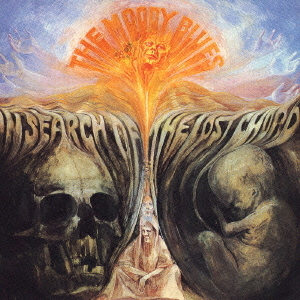 Number One: In Search of the Lost Chord by The Moody Blues, 1968
Number One: In Search of the Lost Chord by The Moody Blues, 1968
Now
this is a cover that grabs your attention! According to the artist who created it, Phil Travers, it’s supposed to convey the idea of meditation. Now, far be it from me to criticise, but this is not at all what it says to me, and I was quite surprised when I read the explanation. For me, this represents the journey from birth to death (though shown in reverse), and while this may not be - is not, according to the artist - the intention behind the work, it’s fair to say that every artist will agree that other interpretations can be put on their work, so here’s how I see it.
You have a skull on the left side and an embryo on the right, with a man sitting between them, while from his head seem to rise higher thoughts. All right, this certainly can be explained as being a representation of meditation, to be fair. It could be - and possibly is - meditation on the state of human existence. The skull (and the embryo) appear to be sunk in the ground, buried even. This is acceptable for the skull: we all die, and if we’re not cremated or shot out into space, we’re buried and our bones end up in the earth. But the embryo? Well I guess it could be viewed also as a sort of seed, new life waiting in the soil to come forth, grow and claw its way to the surface, perhaps even an allegory for the baby pushing its way out of the womb and into life.
Or maybe it’s all bollocks, but this is what I think anyway.
The words above each - “In search of” being above the skull and “the lost chord” above the embryo - could be falling downward, into the earth, into the soil (into death?) or rising up above the poor mud of our mortal coil. Given that the thoughts in the man’s head are rising (to a higher plane?) is it likely the words, the concept, are also rising? Or can it be something even, ahem, deeper?
Searching usually implies digging - if not literally then figuratively: dig that invoice out for me would you? Dig into his personal history, and so on - so the natural expected direction evoked is down, dig down, unearth, excavate. If that’s the case, then both sets of words can be seen to be falling, sinking down, to be uncovered by, what? Truth? Revelation? A higher state of consciousness?
Another point: the words “the lost chord” seem to be centring towards, or emanating from, the embryo, and if you change one letter in chord you get cord. Umbilical cord? Are we talking here about finding the cord to sever it, in order to free the baby and allow it to begin to live? The skull, with the words “in search of”, grinning as all skulls appear to, could be seen as representing that the search is futile, pointless, and will end in death, or that death will overtake the seeker, he or she never having made his or her discovery. It’s facing the embryo, so could be seen to be gloating, though the embryo is not looking at it, being unable to, possibly not even having eyes yet but certainly in the foetal position and so unable to look up. Is it then a symbol of avoidance, technically afraid to face the skull, face the truth it bears, face death? Or is it refusal, a defiance in the face of the crumbling remains of a human being, that what it seeks
can be found, that it
will find it, and that death is a long way off for this newborn child?
The man sits between both the skull and the embryo, caught in the shadow thrown by both, trapped in the earth, below ground. Is he the representation of what the embryo will be, waiting to be born, to ascend to a more spiritual existence? His thoughts lead from deep darkness to brilliant, exploding light high above the soil (grave?) and in fact seem to expand into some sort of bright sunburst, spreading its light over the entire scene. So while all below is dark and gloomy, above the two figures blue sky and white clouds stretch under the warming influence of the sun, while hands (four, for some reason) reach out and seem to rise towards the heavens.
So: meditation? Certainly. I wouldn’t presume to debate the artist. But as in all things in art, interpretation can vary with each person who views it, and while this may not be what Travers intended when he sat down to create this illustration, perhaps there are things in his work that even he is unaware of.
Or maybe I’m just a knob, overanalysing as usual.
Either way, it’s interesting and certainly makes for a fascinating album cover.









:format(jpeg):mode_rgb():quality(40)/discogs-images/R-7776151-1507115727-2915.jpeg.jpg)

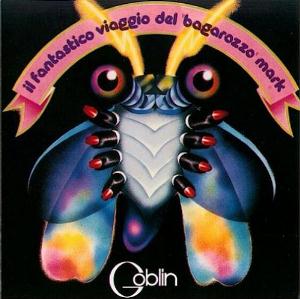
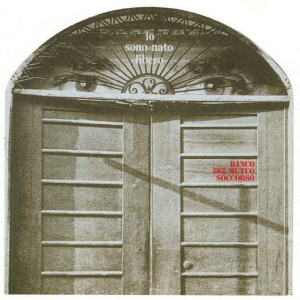
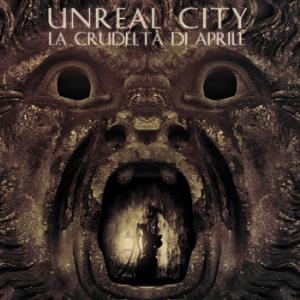
 looks after bass duties. Although they only formed in the twenty-first century it seems Unreal City are afforded the tag of RPI due to their adherence to the old values of bands like PFM and Banco, and indeed are credited here (whether officially or not I don't know) with the extra tag of “modern PFI”. Hmm. This is their debut album, and it seems to have been quite well received. Good boppy start to “dell'innocenza perduta”, some fine organ and piano, vocals then come in around the second minute as the tune settles down into a nice relaxed piano run, and the singing itself is very pleasant. Not a clue what he's singing about of course, but nice to listen to. Picking up speed now in the fifth minute, crazy piano and organ run and some thundering drums from Federico Bedostri. Sounds like a fiddle there at the end. Could be; these guys seem to use a whole lot of instruments, including, I see, a Renaissance lute! Well, I see there's a guest appearance by Fabio Biale on the violin, so I guess that's him.
looks after bass duties. Although they only formed in the twenty-first century it seems Unreal City are afforded the tag of RPI due to their adherence to the old values of bands like PFM and Banco, and indeed are credited here (whether officially or not I don't know) with the extra tag of “modern PFI”. Hmm. This is their debut album, and it seems to have been quite well received. Good boppy start to “dell'innocenza perduta”, some fine organ and piano, vocals then come in around the second minute as the tune settles down into a nice relaxed piano run, and the singing itself is very pleasant. Not a clue what he's singing about of course, but nice to listen to. Picking up speed now in the fifth minute, crazy piano and organ run and some thundering drums from Federico Bedostri. Sounds like a fiddle there at the end. Could be; these guys seem to use a whole lot of instruments, including, I see, a Renaissance lute! Well, I see there's a guest appearance by Fabio Biale on the violin, so I guess that's him.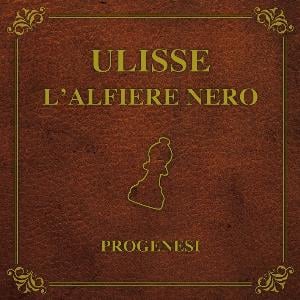

:format(jpeg):mode_rgb():quality(40)/discogs-images/R-6466136-1504784846-6650.jpeg.jpg)
 Linear Mode
Linear Mode
